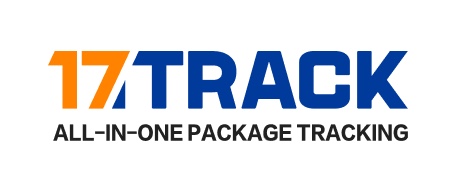The China-Australia freight forwarder service has significant advantages in terms of transportation efficiency, cost control, logistics guarantee, service model and risk management. The detailed analysis is as follows:
I. Transportation Efficiency: Multimodal Transport and Dedicated Line Services Shorten Delivery Time
Air Freight Dedicated Line:
Suitable for high-value and time-sensitive goods (such as electronic products, fresh food), usually arriving in major Australian cities (Sydney, Melbourne, etc.) within 1-3 days, significantly faster than sea transportation.
Case: An e-commerce company used the air freight dedicated line to shorten the new product launch cycle from 30 days by sea transportation to 3 days, seizing market opportunities.
Sea Freight Dedicated Line:
Although the transportation time is longer (overall time 30-60 days), by optimizing routes and port operations, it can stably meet the transportation needs of bulk goods (such as furniture, building materials).
Data: Sea freight costs are 60%-80% lower than air freight, suitable for goods with lower value and greater weight.
Multimodal Transport:
Combining the advantages of air and sea transportation, such as the "sea transportation + air transportation transfer" model, balancing costs and timeliness. A logistics company used multimodal transport to compress the overall transportation time to 15-20 days, while reducing freight by 30%.
II. Cost Control: Bulk Purchase Cost Reduction and Flexible Solutions
Headway Bulk Purchase Cost Reduction:
By integrating a large volume of shipments and negotiating with airlines and shipping companies, obtaining more favorable freight rates. For example, the sea freight price is 15%-20% lower than the market, and the air freight rate is between 35 yuan/kg - 55 yuan/kg (due to differences in freight forwarders and time).
Overseas Warehouse Zero Warehouse Rental Pilot:
Offering a "60-day free rent" policy to reduce inventory capital pressure. A seller utilized this policy, increasing inventory turnover by 40% and reducing storage costs.
Reducing Return and Exchange Costs:
Localized after-sales handling reduces reverse logistics costs by over 50%. For example, returned goods are inspected locally, re-labeled, and resold locally to avoid high costs of cross-border transportation.
III. Logistics Assurance: Safety Management and Full-Process Tracking
Strict Safety Management System:
Using advanced transportation equipment (such as moisture-proof containers, temperature-controlled compartments) and packaging standards to ensure the safety of goods. A logistics company adopted this system, keeping the damage rate below 0.5%.
Full-Process Tracking and Reporting System:
Providing real-time cargo tracking functionality, allowing customers to query the transportation status through the official website or app. A company utilized this system, reducing the abnormal response time from 24 hours to 2 hours.
Insurance Guarantee:
Full-process insurance coverage for headway transportation and overseas warehouse operations, with a damage compensation rate of up to 100%. For example, if a batch of goods was damaged during transportation, the insurance company quickly compensated, reducing the seller's losses.
IV. Service Model: One-stop Solution
Australian FBA Headway Service:
Seamlessly connecting with Amazon's Australian warehouse, delivering goods directly to the FBA warehouse, eliminating the middle环节, and accelerating the listing speed. A seller through this service, shortened the listing time by 50% and increased sales by 30%.
Overseas Warehouse Value-added Services:
Providing quality inspection, labeling, sorting, etc., supporting "small batches, multiple batches" inventory preparation. For example, a brand utilized the dynamic inventory management of the overseas warehouse to avoid stockout risks, with a fulfillment rate of 98% during major promotions.
Full-Chain Visibility:
From domestic outbound to overseas receipt, tracking the status of goods throughout the process, and real-time warning of abnormal situations. A company through this function, reduced the logistics delay rate by 25%.
V. Risk Management: Professional Team and Compliance Support
Professional Customs Clearance Team:
Familiar with Australian customs policies, providing HS code classification, tax planning, etc., reducing inspection rates. A logistics company through this service, shortened customs clearance time from 72 hours to 24 hours.
Flexible Response to Market Fluctuations:
Overseas warehouse supports "sales-driven production", based on sales data to reverse-engineer production plans, reducing inventory accumulation. For example, a seasonal product enterprise through the overseas warehouse to prepare in advance, avoiding peak season sea transportation congestion, with sales growth of 20%.
Personalized Service Solutions: Customized transportation solutions are provided based on the specific characteristics of different goods (such as hazardous materials, cold chain products). A chemical enterprise has achieved compliance with regulations through dedicated transportation for hazardous materials, thereby expanding its market share.


